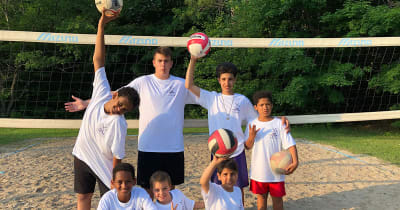Java programming classes near you
You can sort the list above or click on links below to find a discrete list of classes in your city of choice. Find Java classes in these Canadian cities.:
Search Python classes in ANY CITY
What kids and teens learn in a Java programming class
What kids learn in a Java class will often depend on whether the class is beginner, intermediate, or advanced. Here’s a look:
Introductory JAVA classes typically teach kids:
- Basics like print to screen
- Data types and variables like integer, string, character and Boolean
- If conditions and loops
- Arrays and functions
- Classes and methods
- File reading and writing
They may also work with popular gaming platforms like Minecraft to create mods and more.
Intermediate and advanced classes will offer students things like:
- An introduction to Object-Oriented Programming
- An introduction to Advanced Math Fundamentals
- An introduction to programming games
Expand your horizons through related camps and programs
We list more than 200 activities and program types on our site, including more than 20 in the area of technology. Here are some course and camp types related to Java.:
Code camps and kids' coding classes teach programming, with some of those offering young children a basic introduction to various languages. You’ll also find pages on our site that list camps and classes focused on specific languages and platforms like those below.
Python camps focus on this equally popular programming language used to create animations, games (using Pygame), functions, and more. We also list Python classes.
STEM camps and STEM classes integrate the disciplines of Science, Technology, Engineering, and Math into a camp curriculum. Camps make this kind of learning fun and interactive. Kids get cognitive stimulation away from school and learn things they wouldn’t learn in class. STEAM camps and STEAM classes—both including arts—are even more holistic in their approach.
Five benefits of taking a JAVA course
1. The Java programming language is easy to learn. It’s one of the most popular languages, especially for new developers, because Java syntax is similar to plain English. You can learn to program and write quickly.
2. Java is versatile. It can be used for programming across different platforms. You can easily run it on different systems. Because it’s platform-independent at the source and in binary, it’s really an essential programming language for any developer.
3. It’s open source. Java’s features are almost entirely open-source. You can build applications easily and cheaply. Libraries that support Java include Google Guava, Apache Commons, and JHipster, as well as Maven. There’s a wide choice of sources to work with. Discover further benefits to the JAVA language itself.
4. A supportive setting. A Java class or after-school program is a freeform setting where fellow students as well as instructors take pleasure in helping you. You work together to solve coding problems and help with debugging. Interacting in a course setting, students learn more about Java’s versatility, ease, scalability, and programming capabilities. You’ll inevitably share interests with fellow students and broaden your network of fellow learners and programmers.
5. Future job opportunities. Graduates of programs listed above will gain substantial experience with Java and its practical application. Entry-level jobs in this field pay over $80,000 per year in Canada. Proficiency and experience will land you great job opportunities with benefits. Go out and “make the world a better place,” as they say in Silicon Valley.
Questions to ask about Java after-school programs for kids
When choosing a Java class, you’ll need to consider much more than just the course curriculum and location. Here are some other questions to ask providers.:
- Are there any prerequisites or needed purchases before the class? For example, do students need to own a copy of popular platforms such as Minecraft? What other programming languages (HTML for example) will help prepare them for the class?
- What can you tell me about the teachers? What are their specific qualifications, and professional accomplishments? What teaching experience do they have?
- What is the class’s expected outcome? For example, what specific projects will students be working on? Will students earn certification or anything else?
- What facilities or equipment are available in the class? Are students expected to have their own laptop? Are they allowed to bring their own?
And here are more general questions to ask about classes.:
- What is the ratio of teachers to students?
- Does the class provide snacks or food?
- How strict is the pickup and drop off time?
Find more advice from around our website:
Frequently Asked Questions
How many Java classes are there?
There are 4 programs specializing in JAVA. In addition, there are 7 programs offering java as an activity. Use the filters to narrow by age and program type, then click on matched programs to see daily activities, dates, rates and registration information.
What are the fees to attend Java classes?
Fees for Java classes range from $39 to $390 per program (program types and lengths vary). Use the filters here to narrow programs by age and type.
What age do Java classes start at?
There are programs available for children aged 7 through 17.
Where can parents meet with Java classes?
Meet with program directors and staff at the Our Kids Camp & Program Expo. The Expo is held annually in February, and is a fun and informative day for parents, kids, and teens. Find event details and free tickets here.







